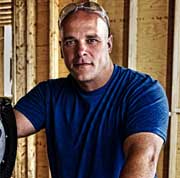Buying a home is one of the biggest investments you’ll make in your lifetime. It’s important to do your research before making a decision, especially if you’re new to the market and don’t know much about modern house and land packages in Australia. Here are some tips on how to buy a home:
1. Know What You Want
It’s important to know what type of home will suit your needs, size and budget before making an offer on one. If you don’t know what kind of house or apartment building you want, there’s no way to find it in advance. Instead, start by listing all the things that matter most to you while looking at different types of homes or apartments in your area. This can help narrow down what type of home would be best for you later on when it comes time for negotiations with sellers and lenders alike.
2. Negotiate Like Crazy
Once you’ve found something that fits with your criteria, negotiate hard! There’s no reason why someone should pay more than they need to for something they don’t want or need anymore anyway — especially if they’re selling because they’ve moved out or are moving back into town after being away for a while (or both!).
3. Know Your Credit Score
You can’t always get what you want when buying a home — but it’s important to know what type of credit score your lender will look at when deciding whether or not to approve your loan application. If your credit score is too low, it could affect your ability to qualify for a loan and make it more difficult for you to get the funds needed for closing costs and other expenses associated with purchasing a home. To help improve your credit score, start paying off debt as soon as possible so that it will be reported on your credit report in time for lenders to consider it when evaluating loan applications from potential borrowers.
4. Make Sure Your Mortgage Payment Is Within Your Means
Everyone has different financial circumstances, but if you take into account all of the costs associated with buying a home (including down payments), there may not be enough money left over after paying off other debts like student loans or credit cards so that you could afford monthly payments on an $800/month mortgage payment alone without having any extra funds left over each month after paying off other expenses such as food and utilities (more on this later).
5. You’ll need to save up for a down payment
A 20 percent down payment is required by the Federal Housing Administration (FHA) and most lenders for most loans. If you don’t have enough cash on hand, consider using an FHA-approved loan with an adjustable rate mortgage (ARM). These loans allow borrowers to pay lower initial interest rates and higher monthly payments over time than fixed-rate mortgages but with less risk of defaulting if interest rates go up in the future.











